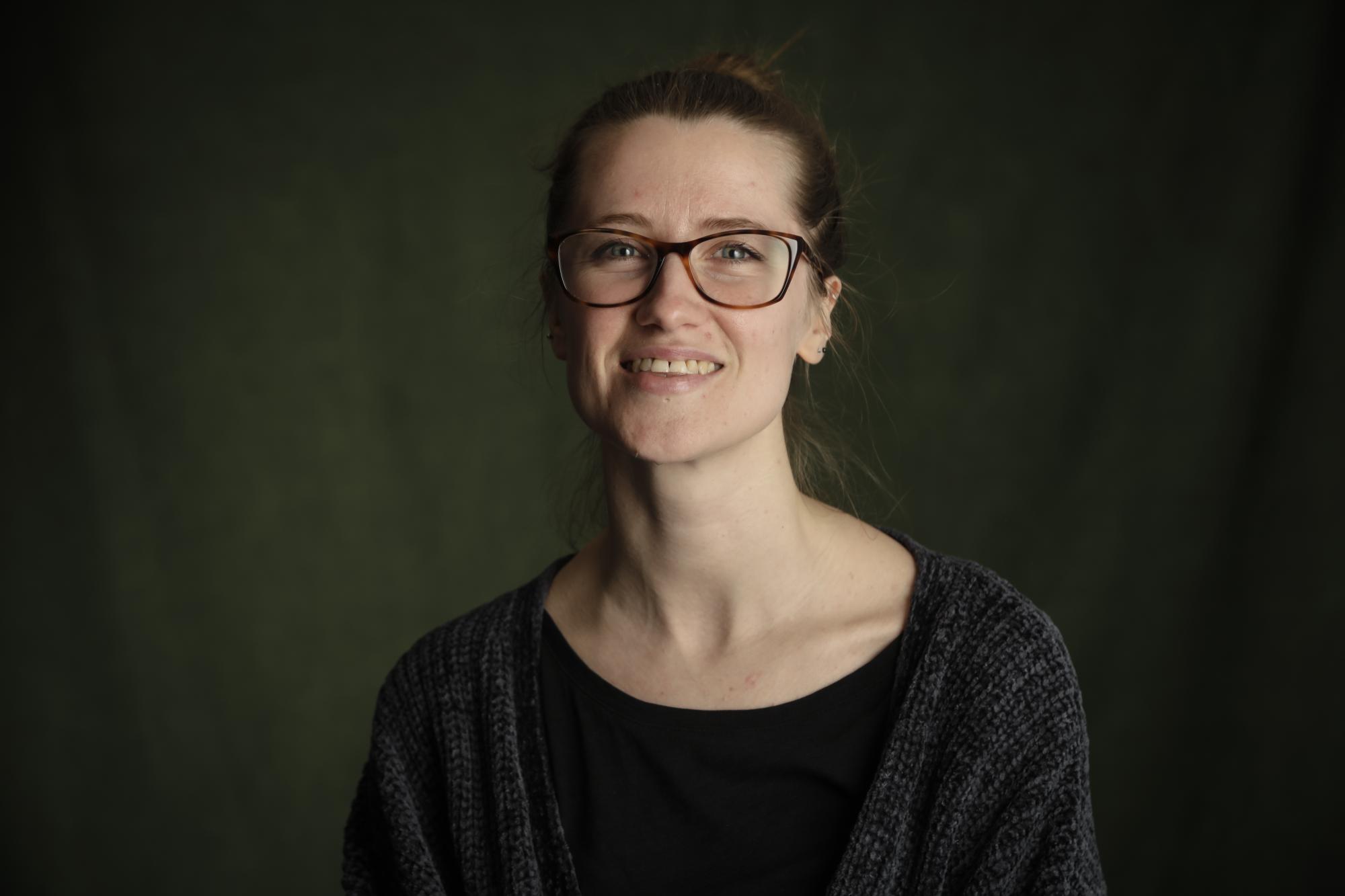
Q: Dear Aoife - how are you? how are you feeling? and what are you working on at the moment?
Hi, I’m great, thanks! It's been so fantastic to be able to be back in the classroom with the kids all together. We are at a lovely point in the school year now, where the kids have socially settled back in and we can really start to learn about how to be good learners. Our 1/2 classes are learning about festivals and celebrations, and it is my favourite time of year for this – lots of candles and fireworks! As English coordinator, I am working on our phonics and writing programs, and in my spare time I am also studying for my Master's in Education and learning Portuguese!
Q: Please tell us a little bit about yourself? Where are you from? What is your background? how long are your at BBS? How did you find your way to BBS?
I’m Irish originally (my name is pronounced 'ee-fa', for those who don't know!), but from my early teenage years lived in London and in the North of England. I did my undergraduate degree in English literature and philosophy, then my PCGE, both in Lancaster, and my final placement in my training took me back down to East London, where I worked as a Year 3 and Year 1 teacher for three years in a well-funded, tech-savvy and very supportive school. I then moved to Berlin to take a break from teaching, working as a cleaner and at the bar in a hostel, which was a very important time for my mental health after the stress of London! Once I decided I missed teaching and wanted to return, BBS was the first and only place I applied! I visited for my interview and fell in love with the ethos and the people. I have been working at BBS since early 2017 – around four and a half years in 5th and 6th grade and then I moved down two floors to teach 1st and 2nd grade this August.
Q: The Parents said you did brilliantly during the first Corona waves. How did you get that reputation?
All of our staff worked extremely hard and learnt an incredible amount very quickly! Andrew and our leadership team made some very forward-thinking decisions that weren't just reactive to the situation as it was, but with a clear plan of how we could use technology to our advantage and to support our teaching and learning rather than just being a necessary medium. They listened to our pedagogical concerns along the way too, and adapted where they could. We were also able to support each other really well within our teaching teams, and became lifelines for each other: checking in, sharing google classrooms, sharing ideas and solutions, even just texting, and I personally feel this had a huge impact on how we were able to navigate [through the] lockdown, maintaining a positive approach in order to provide the best teaching we could for the children.
Q: How do you do lessons now and what did you learn as a teacher?
Being in 1st and 2nd grade now and back in the classroom, we are very aware of the need for off-screen time – learning letters, spelling, writing, but also making, drawing, creating, and (more importantly) doing all of this together, learning teamwork. However, there are some fundamental skills that can be not just achieved but challenged and supported to grow by the right technology, and I am a strong proponent of incorporating that as much as possible in lessons. I and a couple of other teachers used document cameras over lockdown – just a camera with a poseable support that can be pointed at a desk. It's an extremely simple device that exactly fit the bill for online lessons at the time, and that we are now incorporating one into each of our classrooms for collaborative learning. Personally, online teaching also helped me to simplify my teaching, to go back to basics. As an overthinker, I want to do all and everything at once, to create big projects! Especially in 5th and 6th grade. Online, we had to focus on small and achievable tasks, which are really the best way to learn. To combine these two – big projects done in small steps – is the ultimate goal and online learning helped me a lot in the path to achieving that.
Q: What are e.g. accounts/ subscriptions that we still use – why do we have them and what are the benefits?
One of the biggest new benefits we have discovered in online learning has been how learning has been able to be shared. Platforms like Seesaw create class blogs where children can upload, view and (with permission) comment on activities and projects done by their whole class. The collaborative functions on the Google Suite programs we have been using since before the lockdowns too, and these are great for group projects, presentations etc. And the kids always love to do a slideshow! Many of the other accounts and subscriptions are also ones we have been using since before lockdown, like RAZkids and Anton. We have trialled many services and ensure that we only stick with the ones that are easy to use and pedagogically beneficial. They provide access to a huge amount of well-researched and teacher-supported information and resources, and they help us to track and connect with the learning the children are doing at home.
Q: What is the biggest advantage in digital education, in your view and experience?
Sharing is a huge benefit. As well as this, devices like iPads are built so intuitively and apps made with such great user interfaces, they can provide extremely simple yet effective ways to access particular learning. For example, I have used iPads while teaching the skill of captioning photos to 5 and 6 year olds; the children create their own freeze frame scene, take a photo, add it on an app and write a caption underneath. Simple yet effective, accessible and engaging! In the older grades, digital know-how allows for more complex collaborative learning, for a flipped classroom-style learning where the students can independently carry out their own research and come to the lessons armed with knowledge to discuss and evaluate, and maybe most importantly gives them access to the platforms their world is built on. No matter how much we fret about the negative impacts on tech and the internet, its influence will continue to grow – the best thing we can do as educators is to face it head on and learn how to navigate it best.
Q: The Corona crisis is seen as an big accelerator for the digitalisation of many parts society and also digital learning. — how do you see the progress of digital learning in Germany and at BBS?
I would love Germany to use this momentum to make a strong move towards teaching computing in primary. My experience with this in the UK was really positive and so fascinating – using jam sandwiches to teach algorithms, learning with programming toys like BeeBots – and I feel it is something that is less understood by older generations (including many of my own Millennials!) and subsequently something we shy away from, but it is so important to move away from teaching 'IT skills' like how to use Microsoft Word and on to the fundamentals of how technology actually works, especially to encourage more diversity in STEM. We are continually looking at ways to bring these ideas into BBS, like with our STEM week. There is also an ever-growing need for children to learn about digital citizenship as a whole: how to discern accurate information, how to conduct themselves, how to navigate this huge unknown. We are so lucky to have our digital coordinator Sarah taking this on at BBS!
Q: And how did the children take it? how are they coping?
In a huge variety of ways, of course. Most homes are not made to be learning environments for children and we need the equal grounding of the school day. Having said that, we are so impressed at how well all the children adapted, learnt, challenged themselves and grew as people during times when all the adults around them struggled in different ways. It's important that we support them as much as possible, but we also need to remember how adaptable and resilient children are when they have a solid community to take care of them like they have at BBS, with parents at the forefront of that! In the last few months they are so much enjoying being back at school and just being involved in it all again. They missed each other the most, and we are so happy to be able to provide the space for them to thrive socially again after time apart.
Q: What are the big differences for first graders and sixth graders in terms of usage and how do you approach them?
While balance is key for both, it's navigating the balance that's very different. First graders really need off-screen time. We use focused and carefully chosen technology to enrich their learning, but because so much of the technological world is inaccessible to them, and because there are so many basic skills like reading and writing to be learnt (in two languages!), we need to be careful that we are only providing online or screen-based learning opportunities when they are most beneficial.
With sixth graders, in contrast, they can mostly access a whole range of media and materials independently, and we as educators need to teach them the skills to find what they need, to filter, to evaluate and be critical, to know when offline is better. It's teaching them to keep the balance rather than simply leading them through.
Q: What might be the challenges (concerning tech at school)?
As teachers, continuing to commit to having the time and doing the training to really use it to its best advantage; the last thing we want is to throw a bunch of screens into the classroom and have the kids stare at them all day. And a small part of all of us as teachers wants to never look at a computer in a classroom again and only to spend that face-to-face time with the children that we have missed so much! But there are so many positive things we have learnt, and we have a responsibility to use that knowledge, to research and to adapt and change as the world does. For some children, the challenge could be in returning to a medium that caused them stress or frustration in their learning, and for some the challenge may lie in switching off; our challenge is to help them navigate those difficulties and to, like with any learning situation, support them so that everyone has equal access to the best learning for them.
Q: What advice would you give children (and parents) to achieve an ideal online-offline balance?
For parents, don't force anything too much; we all know – and I'm sure parents more than ever after the last two years – that good learning does not happen under stress. For everyone, find offline activities that make you feel good and make sure you make time for them, whether it's basketball or painting or reading, or anything in between. Set achievable goals, then set timers to take breaks; go for walks or playdates, maintain connections with people in person as much as possible, practise mindfulness in a way that suits you, and my holy grail of a life-hack: turn off notifications for big group chats! Lastly, don't forget to go easy on yourselves. We are privileged to live in a place that doesn’t push education or work as hard as other countries. Take advantage of that and allow yourselves to make mistakes and celebrate the wins!

- Log in to post comments
